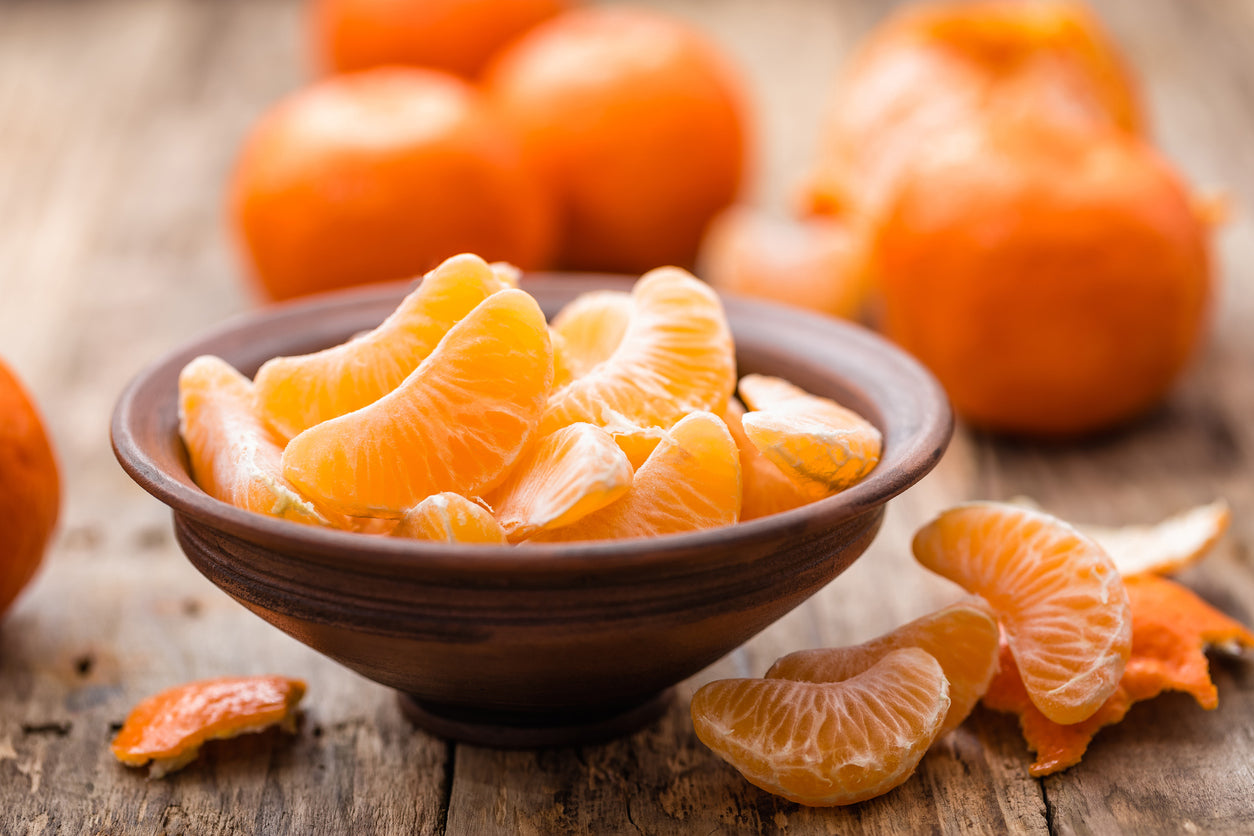AMAZING! Discover the 3 ways that mandarin oranges fight off dis-ease

For aficionados of oranges, mandarins “take it to the next level” with their sweetness, intense flavor and juiciness. And, their looser, pliable peels make it easy to unzip their goodness. But, wait, there's much more good news!
Mandarins are not, technically speaking, of the same species as oranges. Unlike oranges, which are spherical, mandarins are flat at the top and bottom, giving them a boxier shape. However, mandarins are similar to oranges in their high content of antioxidant vitamin C, dietary fiber and beta-carotene (which the body converts to vision-enhancing vitamin A).
And, that’s not all. Current scientific research shows that plant compounds in mandarins and other citrus fruits have the potential to actively fight a variety of diseases.
Find out how to boost your immune system and speed up wound healing
Mandarins are an excellent source of vitamin C, with every medium-sized fruit containing over a quarter of the recommended daily intake for this important micronutrient. Sometimes referred to as “the muscle of the immune system,” vitamin C (or ascorbic acid) is essential for immune health and efficient wound healing – as well as for producing the collagen that keeps skin (and arteries) healthy and flexible.
Keep in mind, running low on vitamin C can have a disastrous effect on the healing process. In a review published in Advances in Wound Care, the researchers cited a study in which 14 of 15 individuals with delayed wound healing had abnormally low vitamin C levels.
Clearly, it’s important to keep vitamin C levels “topped up” – and mandarin oranges are a great tool for accomplishing this.
Reduce your risk of kidney stones
According to Mayo Clinic, roughly 12 percent of American adults have experienced kidney stones. These deposits of crystallized minerals and acid salts can become lodged in the ureters connecting the kidneys and the bladder, causing backup of urine and severe pain.
Not known by most people, studies have linked a diet rich in citrus fruits with reduced risk of kidney stones. As consumption of citrus fruits boosts citrate levels - discouraging kidney stones by making urine less acidic - mandarins are considered by many researchers as a promising dietary intervention.
In fact, experts say that increasing citrate levels can even help break up stones that have begun to form!
It’s official: Mandarin oranges contain a natural anticancer agent
But the best news of all could be contained in a just-published review in Nutrition Research, in which researchers praised hesperidin, a flavonoid in citrus fruits, as a natural anticancer agent. “Several studies have strongly proven the significant chemotherapeutic potential of hesperidin,” the scientists reported.
It turns out that hesperidin fights cancer through multiple mechanisms, unleashing a virtual flurry of attacks against the disease by causing apoptosis (cell death) in cancer cells, interfering with cell proliferation and inhibiting the ability of cancer cells to spread to other locations in the body.
Hesperidin also interferes with angiogenesis, the development of new blood vessels that carry nutrients to growing tumors. And, it combats cancer systemically by scavenging and neutralizing harmful free radicals in the body that promote aging and degenerative diseases.
Hesperidin is “a strong and promising candidate for pharmaceuticals, functional foods and dietary supplements geared towards the better management of cancer,” the team concluded.
It’s so easy to incorporate this special fruit into your diet
In addition to common mandarin oranges, you can enjoy mandarins in the form of satsumas and tangerines.You can also opt for clementines - a seedless hybrid of mandarins and sweet oranges - which are marketed under the brand names Cuties and Halos.
Unpeeled, intact mandarins can last for up to six weeks in the refrigerator, and up to 7 days if stored at room temperature.
With a sparse 88 calories and 2 grams of beneficial dietary fiber, a medium-sized mandarin makes a healthy, convenient and portable snack. You can also use mandarin oranges in salads, marinades and dressings - as well as in recipes for wild-caught fish, pasture-raised chicken and grass-fed beef.
For true mandarin lovers, the sweet orange segments within are like “little slices of paradise.” And, they deliver some fairly heavenly health benefits, as well.
Sources for this article include:
-
Posted in
antioxidants, cancer, citrus fruits, hesperidin, kidney stones, mandarin oranges






